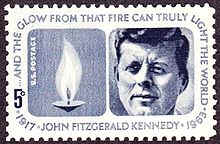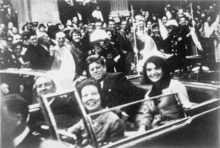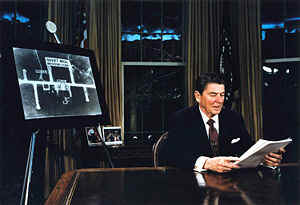|
Very Quick Summaries
A
Very Brief
U.S. History
Political Eras and
Important Events
1 pages
20th Century U.S.
Decade Ranking
Which Decade Was
Best, Worst? 1 pages
20th Century
Decade Evaluation
Interaction of Politics
and Economics
4 pages
20th Century U.S.
Political
Economy
5 pages
Presidential
Politics
Party Politics and Presidential Elections from 1788 to 2012
5 pages
The War On Terror
Who Are We Fighting
1 or 2 pages each
Middle East Facts
40 Maps Ex
40 Maps Explain the Middle
East
History of the Middle East Conflict in 11 Minutes
Brief Sunni-Shiite Conflict
History
Jihad
Al-Qaeda
Militant Hamas Vs. Moderate Fatah
A Concise History of Christianity
Iran,20th Century History of
Iraq,20th Century History of
Islamic Fundamentalism
Sunnis and Shiites at War
US, 20th Century History of
Military Decisions by US Presidents
Afghanistan/Iraq
Wars to Forge
A Look Back at the War in Afghanistan
“The
Rise and Fall
of the Great Powers’
|
Summaries of Published Books
Presidential Courage
Brave Leaders and How They Changed America 1789-1989
by Michael Beschloss
8
page summary
Turning Points in American History
cove 400 years
Five 2-page parts
Thomas
Jefferson
The Art of
Power 2012 Jon Meacham 8 page summary
American Dynasty
Aristocracy,
Fortune, and the Politics of Deceit in the
House of Bush, by Kevin Phillips, 6 page summary
See
Welcome
the Hackocracy, a look at Bush 2's
appointments that made a difference.
Second Chance
Three Presidents and the Crisis of America Superpower
by Zbigniew Brzezinski,
6 page summary,
Generations and The Fourth Turning
William Strauss and
Neil Howe
read an 2
page summary
Don't Know Much About History Everything
You Need To Know About
American History But Never Learned, by Kenneth C. Davis
6 page summary
Education and Income Inequality,
chapter 21 The Age of Turbulence, Adventures
in a New World, by Alan Greenspan
Hoodwinked
An Economic
Hit Man Reveals Why the World Financial Markets
Imploded--and What We Need
to Do to Remake Them, by
John Perkins
The War
Book Reviews
Blackwater
The Rise of the World's Most Powerful Mercenary Army
Book
Reviews from the New York Times, Crooks
and Liars, and The Economist
How jihad went freelance is a
review of three recent books. Al-Qaeda has
evolved from a single group
to an amorphous movement. Does that make
it less dangerous or more so?
Jan 31st 2008 of The Economist.
Other
Interesting Reviews
How
the West Was Lost
Fifty Years of Economic Folly--and the
Stark Choices
Ahead by Dambisa Moyo
1 page review and 8
Minute Video
and
43 Minute Video
The Predator State Video Part 1
Part 2
Decades of US Problems Faced by US
Thoughts Concerning Society
More Thoughts Concerning Society
Capitalistic Democracy
Generations and The Fourth Turning
The Big Secret Behind U.S. Federal
Debt
Who Will Solve These Health Care Problems
Causes and Solutions to Health Care Problems
U.S. Education Vs. Germany and Britain, Our Biggest Value Added
Competitors
GDP Per Capita by State
Election Issues,
1 page summaries of federal debt, health care, education & econ
Decades of US Problems Faced by US
Interesting Stuff
20th Century U.S. Political Economy
The Great Recession Using Quick Notes
The War On Terror: Who Are We Fighting
Capitalistic Democracy
Decades of US Problems
Current Events Internet
Library Events Internet Library
Travels
with Walter, an Educator's Life
explores the genius behind these
Free Internet Libraries.
E-mail
antonw@ix.netcom with suggestions.
|
Political
Economy Book Reviews
Capitalism in the Twenty-First Century "Why We' re in a New Gilded Age"
by
Thomas Piketty 2014
The Shifts and Shock What We Learned from the Financial Crisis
by Martin Wolf 9/11/14
Seven Bad
Ideas
How
Mainstream Economists Have Damaged America and the World by Jeff Madrick
Reviewed by Peter Richardson 2014
"This Time Is Different"
is a history of financial collapse from 1300 to the present.
"Nickel and Dimed"
On (Not) Getting By in America is a book written by Barbara
Ehrenreich. Written from the perspective of the undercover journalist,
...Nickel and Dimed"
On (Not) Getting By in America is a book written by Barbara
Ehrenreich. Written from the perspective of the undercover journalist,
...
A Brief History of US Banking is a brief chronology.
The Center Holds Obama and His Enemies is "the thrilling story of one of the most momentous contests in
American history, the Battle Royale between Obama and his enemies from
the 2010 midterms through the 2013 inauguration."
Video
by Jonathan Alter, 2013
Strange Rebels: 1979
and the Birth of the 21st Century.
By Christian Caryl. Basic; 400 pages
argues that 1979 belongs to the select club of real turning-points:
"years in which one era ended and another was born.
1917 proved to be a bloody dead end and
1848 proved to be, in A.J.P. Taylor’s phrase, “a
turning-point in history when history failed to turn”. But
others, such as 1789 (when France’s
ancient régime collapsed) and 1517 (when Martin Luther
nailed his 95 theses on the door), resound down the ages."
Editors note: Was the liberalism of the 20th century coming to an
end?
Free
Trade Doesn't Work by
Ian Fletcher, adjunct fellow at the United States Business and Industry
Council, and CPA'
In his effective 267 pages of text, Ian Fletcher dissects and often
demolishes fundamental teachings about the benefits and risks
of trade and replaces them with evidence based updates. He then recommends
a practical alternative based on clear objectives.
Nemesis by Chalmers Johnson from Stephen Lendman
of
counter currents
"Our democracy and way of life are
now threatened because of our single-minded pursuit of empire with a
well-entrenched militarism driving it that's become so powerful and
pervasive it's now an uncontrollable state within the state."
How You Can Kill Al-Qaeda in Three Easy Steps
review from
Boing Boing
I just got done reading Howard Clark's new book "How You Can Kill Al-Qaeda
(in Three Easy Steps). He's an ex-Marine and former Homeland Security
adviser who says the way to win the war on terrorism is to help empower
the mainstream Muslim community, who in recent years has been overshadowed
in the public spotlight by fringe Al-Qaeda extremists. The whole idea of
fighting terrorism with ideas and not weapons is definitely nothing new,
but Clark's populist tone and foreign policy street cred was a refreshing
perspective to have in the discussion. "Click on the link below in the
next 30 minutes and I'll throw in this egg slicer absolutely free! Here's
how to order!" Book's official site...
One Nation Under Contract: The Outsourcing of American
Power and the Future of Foreign Policy
In this CSPAN2 book interview, Allison Stanger talks of her book which looks at the increasing use
of private contractors by the U.S. government and argues that with proper
oversight contractors can be valuable tools for carrying out our foreign
policy. Includes audience Q&A.
Guns,
Germs, and Steel - the fates of human societies
'...attempts to explain why
Eurasian
civilizations, as a whole, have survived and conquered others, while
attempting to refute the belief that Eurasian
hegemony
is due to any form of Eurasian intellectual, moral, or inherent genetic
superiority."
The Limits of Power
The End of American Exceptionalism,
Bill Moyers sits
down with history and
international relations expert and former US Army
Colonel Andrew J. Bacevich who identifies three
major problems facing our
democracy: the crises of economy, government and militarism, and calls
for a
redefinition of the American way of life.
The Limits of Power Democracy Now interviews Andrew Bacevich, a conservative historian who spent
twenty-three years serving in the US Army. |



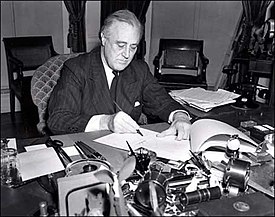
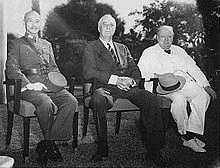






.jpg/350px-Freedom_Rider_plaque_(4653382530).jpg)
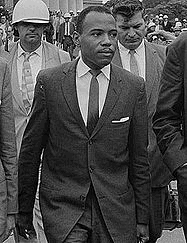

.tiff/lossless-page1-220px-Rosa_Parks_(detail).tiff.png)
